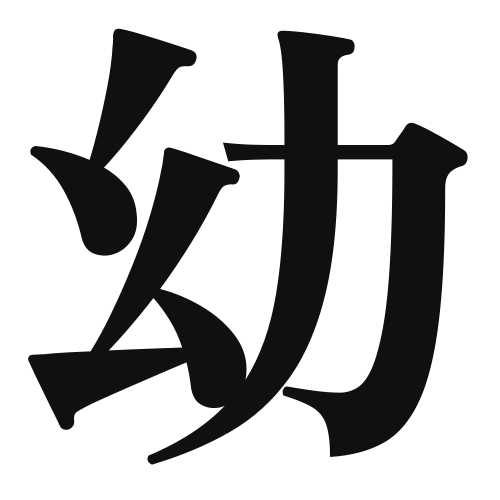1. Overview of Meaning
The kanji “幼” (yō) means “young” or “childish.” It is often associated with childhood, innocence, and the early stages of development.
2. Formation and Radical
Formation of the Kanji: The kanji “幼” is a phonetic-ideographic character (形声文字). It combines the radical for “child” (子) with the phonetic component “you” (幼), which contributes to its meaning related to youth.
Radical: The radical of “幼” is 子, which means “child” and is commonly found in kanji related to children or youth.
3. Examples of Usage
Common Words and Phrases:
- 幼稚園 (ようちえん, yōchien) – kindergarten
- 幼い (おさない, osanai) – young, childish
Example Sentences in Daily Conversation:
- 彼はまだ幼いです。 (かれはまだおさないです。) – He is still very young.
- 幼稚園に子供を送ります。 (ようちえんにこどもをおくります。) – I will take my child to kindergarten.
4. Synonyms and Antonyms
Similar Kanji:
- 未 (み, mi) – meaning “not yet” or “un-” which also relates to youth but emphasizes the idea of something that has not matured.
Antonyms:
- 老 (ろう, rō) – meaning “old” or “aged,” which is the opposite of “幼” and signifies maturity or advanced age.
5. Cultural and Historical Background
Relation to Japanese Culture: The concept of youth and childhood is highly valued in Japanese culture, often associated with purity and potential. The kanji “幼” reflects this cultural appreciation.
Proverbs and Idioms:
- 幼い頃の思い出 (おさないころのおもいで) – “Memories from childhood,” highlighting the importance of early experiences in shaping a person’s life.
